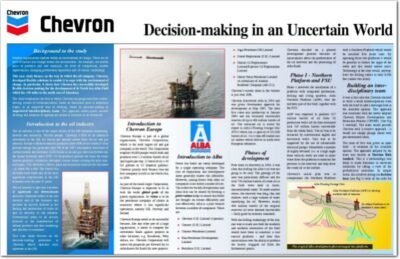Regionalism is a concept that describes the process of nations forming regional organizations or alliances to promote economic, political, and social cooperation. This process involves creating trade agreements, establishing common policies, and developing shared institutions to facilitate collaboration and integration within a specific geographic area. Regionalism can manifest in various forms, including free trade agreements, customs unions, and political alliances.
It is often viewed as a stepping stone towards broader global integration. The driving force behind regionalism is the belief that countries within a particular region can derive benefits from closer cooperation and integration. By collaborating, nations can combine their resources, enhance their collective bargaining power, and create a more stable and prosperous environment for their citizens.
Regionalism also enables countries to address shared challenges and opportunities in a coordinated manner, leading to more effective and efficient solutions. Furthermore, it can help reduce trade barriers, stimulate economic growth, and encourage cultural exchange among member states.
Key Takeaways
- Regionalism refers to the process of countries coming together to form a regional organization in order to address common issues and promote cooperation.
- The European Union (EU) is a prime example of regionalism, with member countries working together on economic, political, and social issues.
- The Association of Southeast Asian Nations (ASEAN) is another regional organization focused on economic integration and political cooperation among its member countries.
- The North American Free Trade Agreement (NAFTA) is a regional trade agreement between the United States, Canada, and Mexico, aimed at reducing trade barriers and promoting economic growth.
- The African Union is a regional organization that aims to promote unity and cooperation among African countries, addressing issues such as peace, security, and development.
The European Union (EU)
The European Union: A Beacon of Regionalism
The EU’s Founding and Evolution
The European Union is a shining example of regionalism in the modern world. Established in the aftermath of World War II, its primary goal was to foster economic cooperation and prevent future conflicts among European nations. Over time, the EU has transformed into a political and economic union, with its member states sharing a single market, a customs union, and a common currency, the euro.
Institutions and Benefits
The EU has its own institutions, including the European Parliament and the European Commission, which make decisions on behalf of its member states. The union has brought numerous benefits to its member states, including increased trade, investment, and economic growth. It has also facilitated the free movement of people, goods, services, and capital within its borders, creating a more integrated and prosperous region.
Challenges and Opportunities
Despite its successes, the EU has faced challenges, such as the recent Brexit vote by the United Kingdom to leave the union, as well as ongoing debates about the balance of power between member states and EU institutions. However, the EU remains a powerful example of how regionalism can promote peace, stability, and prosperity.
Looking Ahead
Despite the challenges it faces, the EU continues to be a beacon of regionalism, promoting cooperation and integration among its member states. As the EU looks to the future, it is poised to remain a major player on the global stage, promoting peace, stability, and prosperity for its citizens and beyond.
The Association of Southeast Asian Nations (ASEAN)

The Association of Southeast Asian Nations (ASEAN) is another important regional organization that promotes cooperation and integration among its member states. Founded in 1967, ASEAN aims to foster economic growth, social progress, and cultural development in Southeast Asia. It has also played a key role in promoting peace and stability in the region through dialogue and diplomatic efforts.
ASEAN has made significant progress in reducing trade barriers among its member states and has established a free trade area to promote economic integration. ASEAN has brought numerous benefits to its member states, including increased trade and investment, as well as greater political and security cooperation. It has also helped to promote regional stability and prevent conflicts among its member states.
However, ASEAN also faces challenges, such as the need to address human rights issues and promote greater political integration among its diverse member states. Despite these challenges, ASEAN remains an important example of how regionalism can promote cooperation and integration in a diverse and dynamic region.
The North American Free Trade Agreement (NAFTA)
The North American Free Trade Agreement (NAFTA) is a regional trade agreement between the United States, Canada, and Mexico that came into effect in 1994. NAFTA aims to eliminate trade barriers and promote economic integration among its member states. It has led to increased trade and investment among the three countries, as well as greater economic growth and job creation.
However, NAFTA has also faced criticism for its impact on jobs, wages, and environmental standards in the member states. NAFTA has brought numerous benefits to its member states, including increased trade and investment, as well as greater economic growth and job creation. It has also helped to promote regional stability and prevent conflicts among its member states.
However, NAFTA also faces challenges, such as the need to address concerns about its impact on jobs, wages, and environmental standards. Despite these challenges, NAFTA remains an important example of how regionalism can promote economic integration and cooperation among its member states.
The African Union
The African Union (AU) is a continental organization that promotes cooperation and integration among its member states in Africa. It was established in 2001 with the goal of promoting peace, security, and development on the continent. The AU has made significant progress in addressing conflicts and promoting democratic governance in Africa.
It has also played a key role in promoting economic integration through initiatives such as the African Continental Free Trade Area (AfCFTA). The AU has brought numerous benefits to its member states, including increased political cooperation, economic integration, and security collaboration. It has also helped to promote peace and stability in Africa through its peacekeeping efforts and conflict resolution mechanisms.
However, the AU also faces challenges, such as the need to address governance issues and promote greater economic development across the continent. Despite these challenges, the AU remains an important example of how regionalism can promote cooperation and integration in a diverse and dynamic continent.
Benefits and Challenges of Regionalism

Regionalism offers numerous benefits to its member states, including increased trade and investment, greater economic growth, enhanced political cooperation, and improved security collaboration. By working together within a specific geographic region, countries can pool their resources, increase their collective bargaining power, and create a more stable and prosperous environment for their citizens. Regionalism also allows countries to address common challenges and opportunities in a coordinated manner, leading to more effective and efficient solutions.
However, regionalism also faces challenges that must be addressed in order to realize its full potential. These challenges include the need to balance the interests of different member states, address governance issues, promote greater political integration, and ensure that regional initiatives benefit all members equally. Regionalism also faces external challenges such as global economic trends, geopolitical shifts, and security threats that can impact the stability and prosperity of a region.
Despite these challenges, regionalism remains an important tool for promoting cooperation and integration among countries within a specific geographic region.
The Future of Regionalism
The future of regionalism is likely to be shaped by ongoing global trends such as technological advancements, demographic changes, environmental challenges, and geopolitical shifts. Regional organizations will need to adapt to these trends in order to remain relevant and effective in promoting cooperation and integration among their member states. This may involve greater emphasis on digital connectivity, sustainable development, climate change mitigation, and security collaboration within specific geographic regions.
The future of regionalism will also be influenced by the evolving nature of global governance and international relations. Regional organizations will need to navigate complex geopolitical dynamics and power struggles in order to promote peace, stability, and prosperity within their respective regions. This may involve greater engagement with global institutions such as the United Nations and the World Trade Organization in order to address common challenges that transcend national borders.
In conclusion, regionalism is an important concept that promotes cooperation and integration among countries within a specific geographic region. It offers numerous benefits to its member states but also faces challenges that must be addressed in order to realize its full potential. The future of regionalism will be shaped by ongoing global trends and evolving global governance dynamics.
Despite these challenges, regionalism remains an important tool for promoting peace, stability, and prosperity within specific geographic regions around the world.
If you’re interested in learning more about regionalism and its impact on business, you may want to check out this article on 3 Classic Business Case Studies All Business Students Should Know. This article explores real-life examples of how regional trade agreements, such as the EU, ASEAN, NAFTA, and the African Union, have influenced business operations and strategies. It provides valuable insights into the challenges and opportunities that arise from regionalism and can help you understand the practical implications of these agreements on businesses.
FAQs
What is regionalism?
Regionalism refers to the process of countries within a specific geographic region coming together to form a cooperative arrangement in order to address common issues and promote shared interests.
What is the European Union (EU)?
The European Union is a political and economic union of 27 member states located primarily in Europe. It has its origins in the European Coal and Steel Community formed in 1951 and has since grown to include a single market, a customs union, and a common currency (the euro) among other things.
What is the Association of Southeast Asian Nations (ASEAN)?
The Association of Southeast Asian Nations (ASEAN) is a regional intergovernmental organization comprising ten Southeast Asian countries, which promotes intergovernmental cooperation and facilitates economic, political, security, military, educational, and sociocultural integration among its members and other Asian states.
What is the North American Free Trade Agreement (NAFTA)?
The North American Free Trade Agreement (NAFTA) was an agreement signed by Canada, Mexico, and the United States, creating a trilateral trade bloc in North America. It came into force on January 1, 1994, and was replaced by the United States-Mexico-Canada Agreement (USMCA) in 2020.
What is the African Union (AU)?
The African Union (AU) is a continental union consisting of 55 member states located on the continent of Africa. It was established on 26 May 2001 in Addis Ababa, Ethiopia, and launched on 9 July 2002 in Durban, South Africa, with the aim of replacing the Organization of African Unity (OAU).
 Communicating through the "world game", for brand and corporate reputation (PDF)
Communicating through the "world game", for brand and corporate reputation (PDF)  Decision-making in an uncertain world (PDF)
Decision-making in an uncertain world (PDF) 